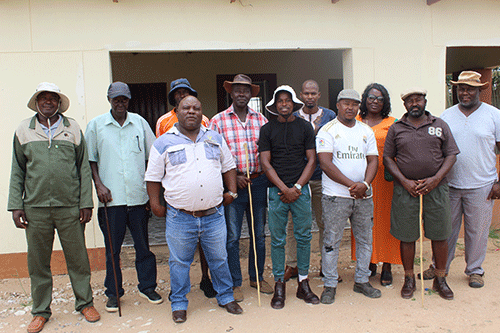Aminuis farmers want the government to avail more tractors to increase crop production in the area, as the only working tractor they have does not cater for everyone.
This delays farming and productivity, chairman of the Aminuis Crop Producers’ Cooperative Dakoo Uandara told New Era last week.
He said with the rainy season looking promising, farmers try to persevere and ensure food security, but the only tractor does not meet the demands.
“The government must prioritise the needs of people who are producing food on their own. We are determined to fight poverty by producing our food. However, the only small tractor we have is always not operational, as the demand exceeds its capacity,” he noted.
Speaking at a reent community meeting, farmer Gotti Riruako said they need a four-wheel-drive tractor which can cater for the area.
“We depend here on underground water of 150-200 ml on average. We need a tractor to produce food in a large capacity. This is the support we need from our government.
Food security improves household standards, especially for poor women who are head of the houses,” he stressed.
On his part, agricultural technician in Aminuis Karlos Tjiho said the tractor was distributed as a demonstration to the farmers only, not for doing work for the entire area.
He then revealed that government purchased some tractors but keeps them at the regional office, pending the official handover ceremony.
“Those tractors are supposed to help improve the situation and assist the farmers, but are not yet distributed because of the official handing-over that is taking long,” said Tjiho.
There are also hammermills which are still in Gobabis, waiting to be handed over.
“Those types of equipment are getting old before being used. We need to be equipped with equipment with accessories. Government has prioritised agriculture over the years, and you can only become food-secure if you produce food.
The (ministry) prioritises areas north of Omaheke due to rain in that area, leaving Aminuis stranded. It is supposed to serve all, but it does not,” he continued.
Meanwhile, the line ministry is currently promoting its Dry Crop Production Programme as part of its mandate to increase food production.
The programme supports a majority of households who depend on rain-fed crop farming for their livelihoods, and is aimed at enhancing knowledge on appropriate farming techniques for farmers, increasing household food security levels and eventually contributing to the reduction of poverty and income inequality.
– ljason@nepc.com.na


